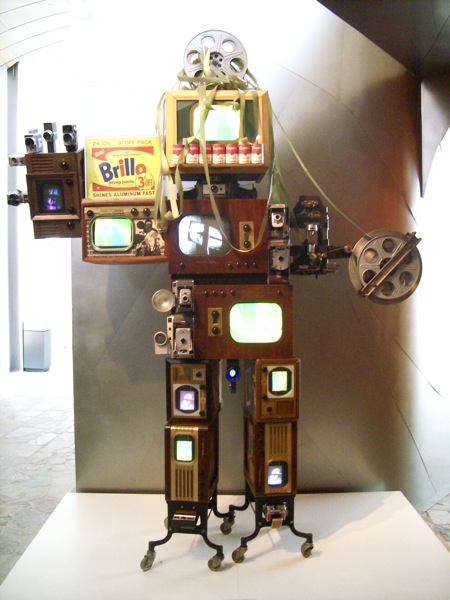Carol and I are sitting at Amelie’s, a French bakery in Charlotte, N.C., that’s open 24 hours a day, seven days a week. It’s after eleven o’clock on a Thursday evening, and there are lots of people here. At a table to my right, I can sort of hear two men talking about the theater. There’s a card game going on at aother table. There’s a couple who look to me as though they’re on a date. Two women sitting on couches are talking very seriously in low voices. That’s this room. There are two other rooms, the main bakery counter, and the outside patio. I’ve heard at least two languages other than English (Russian was one, and I’m not sure about the other). I’m seeing a lot of white folks, but there’s definite racial diversity here. And I’d guess that all of the people here are younger than Carol and me (that is, at least under 45). There is excellent wifi access, and I can see people checking Facebook and surfing the Web. We are sitting at a table with two laptops, a pear tart, a peach tart, and a cup of really good coffee:

OK. You know what the setting is like. Now, a lot of what I’ve been hearing about recently is how the shape of religion and spirituality is changing, and it’s increasingly taking place outside of traditional places of worship, particularly for people younger than me. If I lived in Charlotte, given that I’m something of a night owl, I have a feeling that I’d be spending a lot of time here. And if I were going to imagine a place where I’d want to do spirituality, this would be it. This pear tart can only be described as spiritual. Good wifi access, pleasant surroundings, interesting conversations going on around you — what more do you need?
If I had my way, church would look more like Amelie’s, and I’d be able to get fast wifi access and really good pear tarts and really good coffee there.
Hey, a guy can dream.


